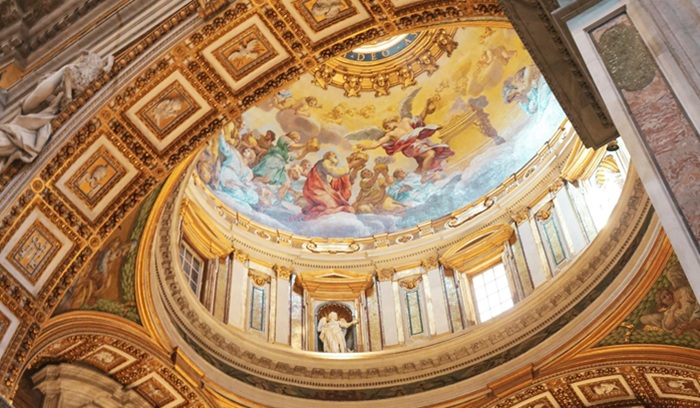Italy has agreed to turn a 430-hectare field at Santa Maria Galeria—about 35 kilometers north of Rome—into a solar farm aimed at powering Vatican City entirely with renewable energy and making it the world’s first carbon-neutral state (AP News). The site holds extraterritorial status and carries financial implications that require approval from the Italian parliament before contracts can be awarded.
A Controversial History Recast for Sustainability
The Santa Maria Galeria site was long associated with Vatican Radio, which has operated transmission towers there since the 1950s. As the surrounding area became more developed, residents raised health concerns, including reports of childhood leukemia linked to electromagnetic emissions. While courts cleared the transmitters of wrongdoing, the Vatican reduced broadcasting hours in subsequent years due to technological changes, not health concerns (AP News; AP News historical background).
Aligning Religious Commitment with Environmental Action
Pope Francis, a vocal advocate for ecological stewardship and author of the encyclical Laudato Si’, commissioned the study into converting the controversial site into a solar energy facility. His successor, Pope Leo XIV, visited the site in June and reaffirmed his commitment to bringing Francis’s ecological vision to life, emphasizing environmental responsibility as central to the Church’s spiritual mission (AP News; Wikipedia: Vatican Climate Forest).
Project Details and Benefits
The agreement stipulates that the site’s agricultural use will continue alongside solar development to minimize environmental disruption. Italy’s support includes allowing the Vatican to import solar panels tax-free, although the Vatican won’t receive the subsidies typically available to solar installers in Italy. In return, any electricity generated beyond Vatican needs will be shared with nearby communities, and Italy can count the clean energy output toward its EU climate targets (AP News; ESG News).
Vatican officials estimate the project will cost under €100 million (around US $114 million). Once parliamentary approval is secured, contracts for construction and operation could be tendered, potentially launching the project before the decade’s end (AP News; Caliber.az).
Beyond energy metrics, this project is a powerful symbol of how religious institutions can embody environmental stewardship. Pope Leo XIV’s recent Mass using an ecological liturgy underlines this symbolic shift—highlighting care for creation as a core spiritual and moral priority (AP News on liturgy).
Global Significance and Forward Momentum
The Vatican’s solar farm could serve as an influential model for small states, religious entities, and diplomatic spaces seeking sustainable leadership. In replicating this approach—leveraging institutional legitimacy, symbolic values, and innovative policy—a blueprint emerges for decarbonization across unique jurisdictions.
With energy demands shifting and climate impacts accelerating, the Vatican’s solar initiative turns legacy land into a beacon of hope. By aligning theological purpose with clean energy investment, Vatican City may not just be carbon-neutral—it could be a renewal of faith in global environmental responsibility.
More Good News
-

Senegal launches all-electric bus network powered by renewable energy
Senegal has successfully launched a transformative Bus Rapid Transit system in Dakar, featuring a fleet of 121 fully electric buses. As the first network in Sub-Saharan Africa to operate entirely on renewable energy, the initiative utilizes local solar power to transport up to 300,000 passengers daily. By utilizing dedicated lanes, the clean energy fleet cuts cross-city commute times in half while preventing nearly 60,000 tons of carbon dioxide emissions annually. This monumental project dramatically improves urban air quality and establishes Senegal as a pioneering leader in sustainable, green public infrastructure.
-

Yangtze River showing remarkable ecological recovery following fishing ban
China’s Yangtze River is experiencing a remarkable ecological revival five years into a sweeping ten-year commercial fishing ban. Recent surveys reveal significant increases in overall fish biomass and the heartening return of critically endangered species in the world’s fifth largest river. Furthermore, thousands of former commercial fishers have been successfully transitioned into new roles as official river guardians. This massive conservation effort offers a hopeful, replicable model for global freshwater restoration.
-

Rob Jetten becomes The Netherland’s first openly gay prime minister
In a historic victory for representation and progressive politics, Rob Jetten has been sworn in as the first openly gay Prime Minister of the Netherlands. At 38 years old, the centrist Democrats 66 leader is also the youngest head of government in Dutch history. Jetten successfully formed a minority coalition government following a tense election that defeated far-right populist opponents. His platform prioritizes climate investment, economic fairness, and strong international collaboration. Jetten’s premiership powerfully reaffirms the Netherlands’ global legacy as a pioneer of LGBTQ+ equality and inclusive, cooperative democratic leadership.
-

Millions of New York City workers gain additional time off through new law
Millions of workers in New York City are benefiting from a major expansion of the Protected Time Off Law, which officially took effect in late February 2026. The progressive legislation grants employees an additional 32 hours of unpaid, protected leave that is available immediately upon hire or at the start of the calendar year. This ensures workers do not have to wait to accrue hours before addressing sudden medical emergencies or family crises. The law also vastly expands permitted uses to include mental health care, public disaster recovery, and caring for disabled loved ones.
-

Malaysia bans electronic waste imports to protect the environment and public health
In a monumental victory for public health and environmental justice, Malaysia has enacted an immediate and absolute ban on the importation of electronic waste. By removing regulatory loopholes and launching a strict enforcement campaign, the nation is successfully preventing toxic heavy metals from polluting its soil and waterways. Authorities have already intercepted hundreds of thousands of kilograms of illegal e-waste at major ports, vowing to return the hazardous materials to their countries of origin. This decisive action establishes Malaysia as a leading force in Southeast Asia’s growing movement to reject global waste and prioritize ecological sustainability.
